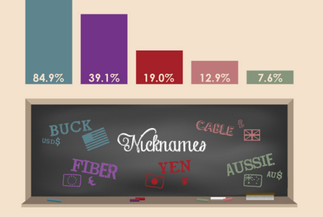Even though meta tags have a smaller importance today than a few years ago, they are still vital when it comes to optimising your pages and making the users click on your content. Gotta write some meta tags and don’t know where to start? Read this article to absolutely rock this task!
What are meta tags?
Metas are certain snippets that briefly describe your page for Google and other search engines. Below we see the first site that pops up when we type in “forex bonus” at google.co.uk:
Meta Title = the purple thingy
Site URL = the green thingy, an address of the website
Meta Description = two lines of text below the URL
Why are meta tags important?
There are two main reasons that make Meta Tags crucial for SEO.
Search Relevancy
Search Engine Algorithms use the data pulled from meta tags in order to determine the relevancy of your page. If the relevancy is right, search engines will rank the page better.
Click-through Value
Even though a page can be ranked well, what good is it if no one clicks on it? This is why meta tags should not only be search engine friendly, but also should be quite intriguing and actionable for humans.
How to make great meta tags?
Now let’s jump into some practical stuff. By following these 5 rules you will be able to make some great meta titles and descriptions.
1) Keep the length right
Your meta tags should always be long, but not too long. Size matters here. Whenever you are writing meta tags, always check them using this tool:
https://websiteadvantage.com.au/Google-SERP-Emulator
- Make sure that your meta title is always between 480 pixels & 500 pixels.
- Write your meta description between 145 characters & 150 characters.
2) Keywords
Try to identify the main search term for your topic and include it within the meta tags.
- Having keywords is a must, as it will help to rank the content better
- Avoid keyword stuffing. The meta tags should be natural and clear
3) Make the readers curious
CTR (Click-through-rate) is what really makes the difference. It is better to be positioned on the 5th position on Google with great meta tags than to be on the 4th position but with boring tags.
- Your tags should grab attention, provide value, intrigue the reader & call for action
- Special symbols (like £ € ¥ © ®) can really help here
4) Use power words
Power words are terms that simply convince the reader to click-through upon reading them. They can be sensational or frustrating to illicit emotion and compel the reader to click.
- I’d recommend to read this post to get a better overview on power words and their usage: https://blog.bufferapp.com/words-and-phrases-that-convert-ultimate-list
- In this article you can also find a great list of power words to use: http://boostblogtraffic.com/power-words/
5) Be numeric, when possible
People love statistics, numbers, lists and so on. Try to give that to them in your meta tags.
- Relate to your content. Example: 6 reasons to choose a Markets.com Forex Broker
- Use this only when it can stand out, don’t make redundant numbers
So what’s the action item here?
Now, you have spent some 4 minutes reading this article. Make it count!
What I want you to do is to pick up a page on your website that ranks somewhere between the bottom of google page 1 and the bottom of google page 2.
Spend at least 10 minutes brainstorming the greatest meta title and meta description you can write. Give thought to every word.
Update the page and set an event in your calendar to check back on the ranking and traffic changes in a week from now.
Need a tip? Tweet at me at @FinanceMakers, I’ll reply.



